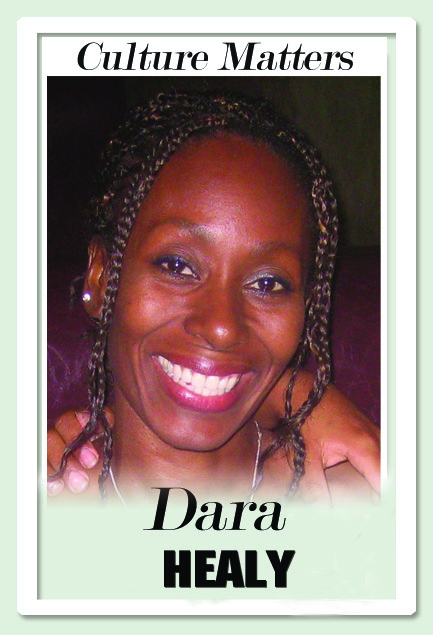Healing and the trauma of centuries

Culture Matters
A Conversation about Race
“Whilst she was putting on the new osnaburgs (a coarse cloth used for work clothes) in which we were to be sold, she said, in a sorrowful voice...'See, I am shrouding my poor children; what a task for a mother!'...the other slaves could say nothing to comfort us; they could only weep and lament with us. When I left my dear little brothers and the house in which I had been brought up, I thought my heart would burst.”
– Mary Prince, enslaved woman from Bermuda
MARY PRINCE was sold along with two of her sisters to raise funds for their master’s wedding. Mary’s story of separation from family was familiar, repeated wherever Africans were enslaved. “I had a constant dread that her mistress would be in want of money and sell my dear wife,” recalled a freed man from the US.
Separation from family was only one aspect of the torture. “Enslaved Africans could be bought or sold, raped and branded with irons, thrown into the sea to their death and then claims for loss of property be made upon insurers.” Globally, laws and government-sanctioned discrimination ensured that the trauma of enslavement continued well into the 20th century. This is exposed in housing and employment practices in the US and with apartheid in South Africa.
In the Caribbean and elsewhere, colonialism deepened colour and class conflicts amongst African people. In 1970, the Black Power movement in TT highlighted inequities experienced by people of African heritage in property ownership, employment and other areas. This week, after African American men were discovered hanging from trees, it seems obvious that the trauma of racism against people of African heritage never really stopped.
What do post-traumatic stress disorder (PTSD) and racism have in common?
Anxiety over a fore-shortened future, difficulty falling asleep, hyper-vigilance (always anticipating danger), outbursts of anger; these are some characteristics of PTSD highlighted by Dr Joy De Gruy in her acclaimed work, Post-Traumatic Slave Syndrome.
After observing behaviours currently displayed by African Americans, she spent over 12 years investigating generational impacts of the trauma of enslavement. Her research methodically links Jim Crow laws, lynchings and oppressive policies to responses such as aggression, outbursts of anger and denial of being African, also evident in the Caribbean (“oh I have Spanish in me”).
Residual trauma is revealed in other ways. Despite a proud history and track record of achievement, people of African heritage are the only ones (that I am aware of) to deliberately write songs and record music to denigrate their race, as with some dancehall and rap. Too many casually use the “N” word; a word specifically designed to dehumanise Africans. African women are primarily the ones to smear powder on their necks as a fashion statement, unaware of the association between white powder and enslavement. Applying the powder signified that the young girls were bathed and cleaned, ready for massa’s pleasure. Today, the powder is applied after a shower, prior to going out.
Thus, in a conversation about race, why does the link between trauma and enslavement matter?
A mere two months into the covid19 pandemic, the World Health Organization acknowledged increased mental health challenges of healthcare workers, older adults in isolation and other vulnerable populations. After the 1993 bombing of the World Trade Centre and Hurricane Katrina in 2005, attention was given to the mental health of survivors as they grieved loss of family and worldly possessions. In the UK, some ten million pounds will be spent on mental health treatment and screening for PTSD for survivors from the fatal Grenfell Tower fire in 2018.
Conversely, descendants of some 12 million Africans, enslaved for 400 years, subjected to apartheid, almost 200 years of colonialism and more, are expected to treat with generational trauma by simply forgetting about enslavement, pulling themselves up by their boot straps and other such cliches. Is this reasonable?
“Racism implies that not only do you have prejudice, but you have the power to do something about it.” George Floyd’s murder has directed attention to globally corrupt legacies of policing. Systemic racism is an essential aspect of this reality, since, like enslavement, it was established by governments to safeguard economic advantage.
In the 21st century, change must include pulling down these systems and providing healing for people of African heritage. As Mary Prince and others will attest, this act of atonement will be several hundred years late, but in any true conversation about race, it will be an acceptable place to start.
Dara E Healy is a performance artist, communications specialist and founder of the NGO, the Indigenous Creative Arts Network – ICAN

Comments
"Healing and the trauma of centuries"